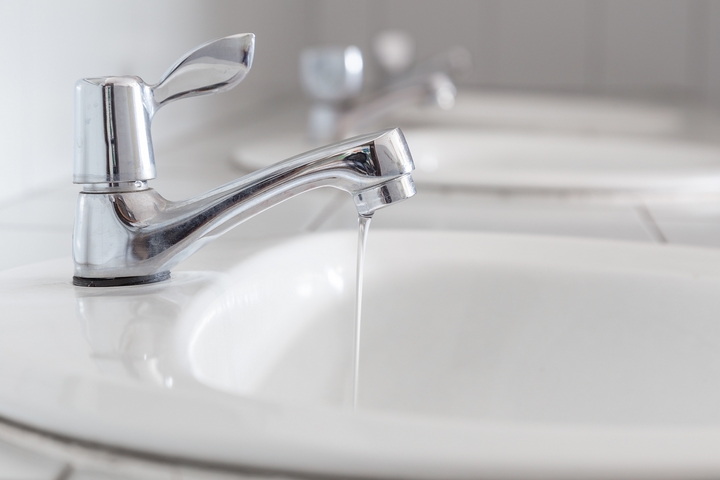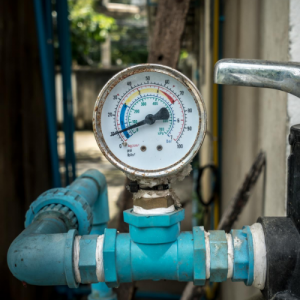In this article on the next paragraphs you can discover a good deal of sound help and advice involving Dealing with Low Water Pressure in Your Home.

Low water pressure in your house can be an irritating issue, affecting every little thing from bathing to washing meals. If you're experiencing weak water flow, there are numerous feasible causes and services to explore. In this overview, we'll discuss usual reasons for low water stress and useful steps to attend to the issue successfully.
Intro to Low Water Stress
Low water pressure takes place when the flow of water from your faucets, showers, and other fixtures is weak than common. This can make daily jobs a lot more tough and much less effective. Recognizing the root causes of low tide stress is crucial to discovering the right service.
Typical Root Causes Of Low Water Stress
Faulty Pressure Regulators
Pressure regulators are in charge of maintaining regular water stress in your home. If they malfunction, it can cause low water pressure or unequal flow throughout the house.
Metropolitan Water Issues
Often, the problem lies outside your home. Municipal water system concerns, such as main line leaks or upkeep job, can briefly minimize water pressure in your location.
Pipe Obstructions
With time, pipelines can become obstructed with mineral deposits, debris, or debris, restricting the flow of water. This is an usual concern in older homes with galvanized steel pipelines.
Deterioration
Corrosion within pipes can bring about leaks and lowered water pressure. Rust accumulation can constrict water circulation, specifically in maturing plumbing systems.
Exactly How to Diagnose Low Tide Pressure
Evaluating Pipelines
Inspect noticeable pipes for signs of leaks, deterioration, or clogs. Take note of any kind of unusual noises, such as banging or rattling pipes, which might indicate issues within the plumbing system.
Consulting with a Plumber
If you're not able to determine the reason for low water pressure, take into consideration working with a specialist plumber to carry out an extensive assessment. They can determine underlying issues and suggest proper options.
Examining Taps and Fixtures
Beginning by evaluating the water pressure at various taps and components throughout your home. If the concern is separated to particular locations, it might suggest localized troubles.
DIY Solutions to Fix Low Tide Stress
Flushing Hot Water Heater
Sediment buildup in the water heater can limit flow and lower efficiency. Purging the container periodically helps eliminate debris and maintain optimum performance.
Examining Stress Regulatory Authority
Make sure that the stress regulator is working appropriately. Readjusting or changing the regulatory authority can assist bring back correct water stress throughout your home.
Cleaning Aerators and Showerheads
Mineral deposits can build up in aerators and showerheads, lowering water circulation. Get rid of and clean up these components consistently to improve water pressure.
Clearing Up Clogs in Piping
For minor obstructions, try making use of a plumbing snake or chemical drain cleaner to clear obstructions in pipes. Beware when using chemicals and comply with safety and security guidelines.
When to Call a Specialist Plumber
If DIY initiatives fall short to solve the problem or if you believe significant plumbing issues, it's ideal to look for help from a certified plumber. They have the competence and tools to resolve intricate concerns safely and successfully.
Safety Nets to Maintain Water Stress
Mounting a Pressure Booster
Think about installing a stress booster pump to improve water pressure in locations with consistently reduced flow. This can be especially advantageous for multi-story homes or properties with high-demand components.
Surveillance Water Usage
Bear in mind water use routines and prevent overtaxing the plumbing system. Basic changes, such as astonishing showers and laundry lots, can assist maintain ample water pressure.
Routine Upkeep
Schedule regular upkeep for your plumbing system to stop concerns such as corrosion, leaks, and clogs. Resolving minor issues early can assist stay clear of more significant repairs later.
Final thought
Managing low water stress can be aggravating, however recognizing the underlying causes and executing ideal services can bring back ideal circulation throughout your home. Whether it's cleaning up aerators, evaluating pipes, or seeking advice from a plumber, taking aggressive steps can ensure a constant supply of water for your everyday requirements.
FOUR WAYS TO FIX LOW WATER PRESSURE NOW
Turning on a shower or faucet only to find the water comes out in a sad, slow drizzle is never a good feeling. How exactly are you supposed to wash a pan or take a quick shower when it takes 10 minutes just to rinse off a little soap? The good news is that when your water pressure is bad, there's always a cause: typically one that can be easily fixed. Here are some of the most common causes of low pressure and what you can do to fix the issue:
DEBRIS AND MINERAL DEPOSIT BUILDUPS
If you notice low water pressure from just one or two of the fixtures in your house, the problem likely has to do with debris buildup. Water is full of minerals and other debris, all of which can accumulate in your pipes and on your fixtures. This can cause a blockage that affects how much water flows through. To fix this, try filling a small plastic bag with white vinegar, and use a rubber band to hang it around your showerhead or faucet. Let the head of the fixture soak for a few hours, and the vinegar should loosen the deposits.
WATER LEAKS
Leaks are another common cause of low water pressure. If water is flowing out of your plumbing through a hole or crack before it can reach your fixture, the pressure coming out of the faucet or showerhead will be lower. A plumbing professional is your best bet for finding and repairing a leak in your water supply pipes.
Leaks are another common cause of low water pressure. If water is flowing out of your plumbing through a hole or crack before it can reach your fixture, the pressure coming out of the faucet or showerhead will be lower. A plumbing professional is your best bet for finding and repairing a leak in your water supply pipes.
A VALVE ISSUE
If you have low water pressure throughout your home, check your main shut-off valve to make sure it's completely open. You may also want to see if there's a pressure-reducing valve installed. If there is, have a plumber help you adjust the settings to get the pressure you're looking for.
OTHERS USING WATER
Believe it or not, your low water pressure could be caused by your neighbors. If you notice low pressure at certain times of day, it may be because you and the people living next to you have similar schedules - when everyone is showering at the same time, the pressure will be lower in every home. Low pressure throughout the neighborhood may also be caused by an issue with your municipal water supply. If that's the case, call the supplier to see if they're working on the issue.
https://www.rotorooter.com/blog/water-leaking/low-water-pressure-fixes/

As a reader on 4 Ways to Troubleshoot Low Water Pressure, I assumed sharing that short article was a great idea. If you enjoyed our blog posting plz don't forget to pass it around. We recognize the value of your readership.
Call Today